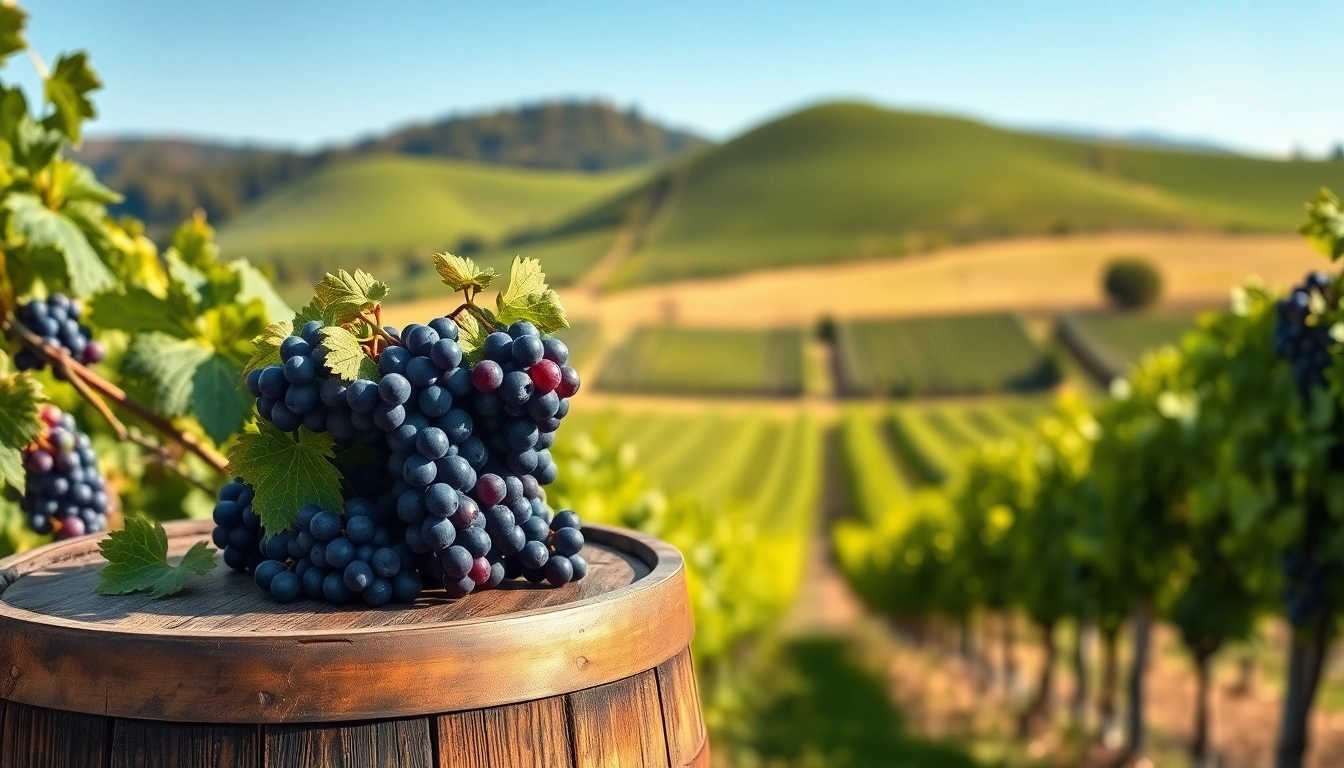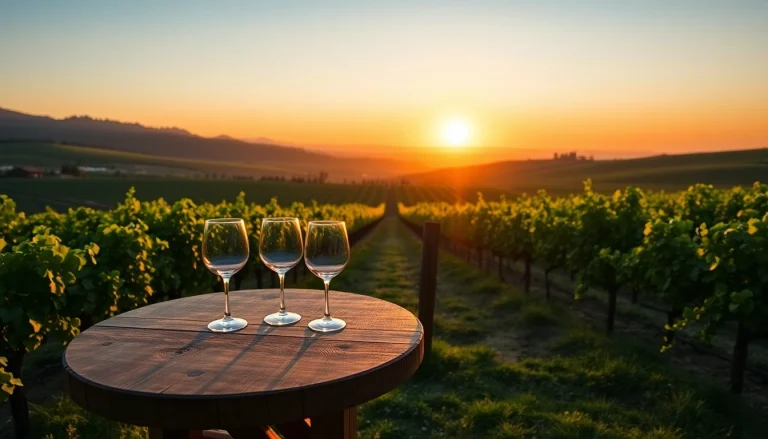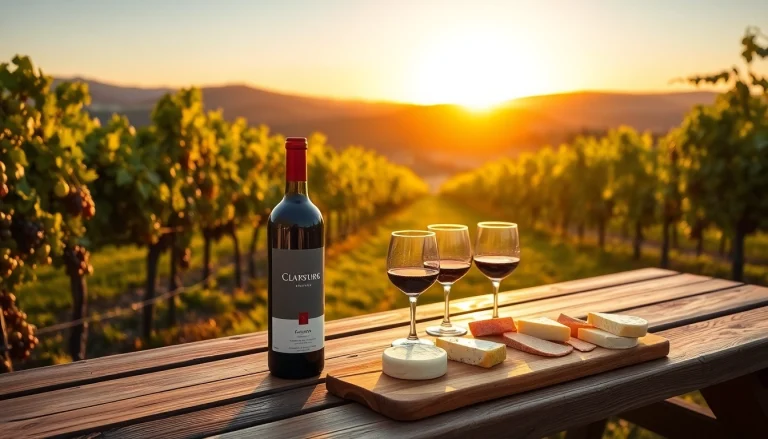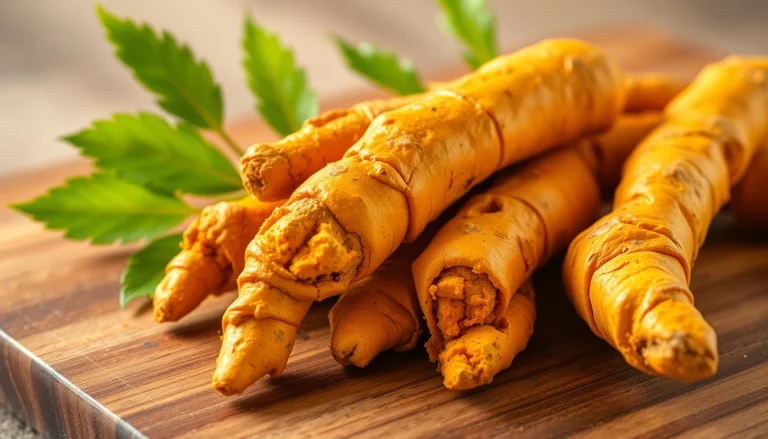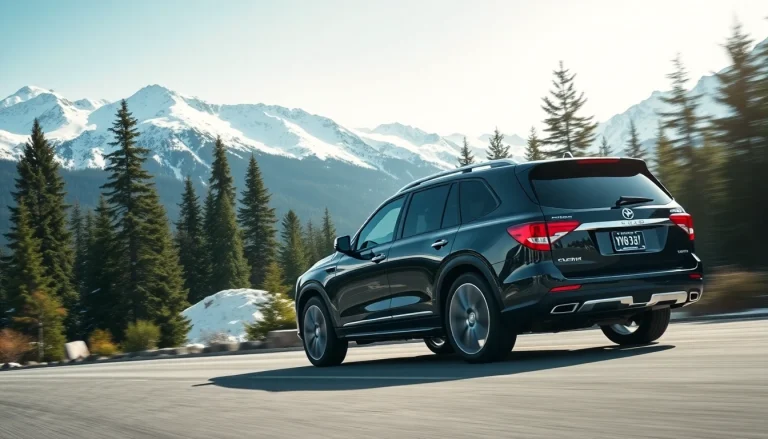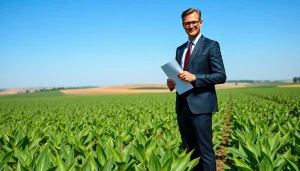Understanding the Wineries in Clarksburg
Nestled within the heart of California’s rich viticultural region, Clarksburg stands out as a hidden gem for wine enthusiasts. The area’s unique geography combined with a rich cultural heritage creates a backdrop unlike any other for wine production. When exploring wineries in Clarksburg, one discovers not only a variety of excellent wines but also a vibrant community dedicated to fostering local agriculture and winemaking traditions.
What Makes Clarksburg Unique for Wineries
Clarksburg is characterized by its distinctive climate and soil composition that contribute to its exceptional viticulture. Located near the Sacramento River and close to some of the state’s most renowned wine regions, Clarksburg benefits from a Mediterranean climate that includes warm days and cool evenings. This climatic balance allows grapes to develop complex flavors, essential for high-quality wine production.
The river also plays a crucial role in moderating temperatures, protecting vineyards from frost and providing adequate irrigation during dry summer months. These environmental factors, combined with fertile alluvial soils, create ideal conditions for growing various grape varietals such as Chenin Blanc, Zinfandel, and Cabernet Sauvignon.
Common Varietals Grown in Clarksburg
Among the plethora of grapes cultivated in the region, certain varietals stand out due to their adaptability and the quality of wine they produce. Chenin Blanc is perhaps the most iconic grape associated with Clarksburg. Known for its versatility, it can produce everything from crisp, dry whites to lush dessert wines. Zinfandel, another preeminent varietal, offers bold flavors and is celebrated for its heritage and robust expressions.
Other significant varietals include Cabernet Sauvignon, known for its full-bodied nature, and Sauvignon Blanc, which thrives in Clarksburg’s climate and adds diversity to the regional palette. The ongoing experimentation with lesser-known varietals such as Petit Verdot and Grenache also reflects the innovation taking root within the Clarksburg wineries.
Brief History of Wine Production in Clarksburg
The history of wine production in Clarksburg dates back to the late 19th century when the first immigrant families began farming the fertile soils of the region. Initially, grapes were planted primarily for personal use and local consumption; however, the quality of the wine was soon recognized by many. As the 20th century progressed, Clarksburg began to develop its identity as a wine-producing region.
In the 1970s, many family-owned wineries were established, setting the stage for Clarksburg’s growth as an officially recognized AVA (American Viticultural Area) in 1985. This designation not only solidified Clarksburg’s reputation in the wine community but also encouraged sustainable viticulture practices, laying the foundation for the modern wineries we see today.
Popular Wineries in Clarksburg to Visit
Top-rated Vineyards for Wine Tasting
Clarksburg boasts a variety of wineries that provide exceptional tasting experiences. Notable amongst them is a selection that consistently receives high praises from visitors and critics alike. Many of these wineries welcome guests for tastings and tours, offering a personal touch to the wine-tasting experience.
For example, one prominent wine estate highlights its commitment to small-batch production while showcasing complex terroirs in its varietals. Guests can partake in guided tastings, enjoying beautiful vineyard views and learning about the winemaking process, thus enriching their overall appreciation for Clarksburg wines.
Family-owned Wineries to Experience
One of the charming characteristics of Clarksburg is its abundance of family-owned wineries. Each family brings its own unique tradition and story to the winemaking process. Many of these wineries have been passed down through generations, preserving age-old techniques alongside modern innovations.
These intimate settings often allow for greater engagement between winery staff and guests, providing a platform for storytelling about each wine’s history, the vineyards, and winemaking philosophy. Choosing to visit a family-owned winery not only supports local communities but also offers a more personalized tasting experience, often accompanied by the best of home-cooked meals featuring local ingredients.
Wine Tours and Events in Clarksburg
Throughout the year, Clarksburg serves as a backdrop for various wine-related events that excite both locals and tourists. From harvest festivals to intricate wine dinners, visitors have the opportunity to immerse themselves in the rich culture surrounding winemaking.
Wine tours are also popular, often organized to explore multiple wineries in one day. These tours provide a seamless experience where guests can enjoy multiple tastings without the worry of transportation. Many wineries offer special event days with live music, food pairings, and educational sessions, creating a vibrant atmosphere for celebrating the community’s rich wine culture.
Wine Pairing Recommendations from Clarksburg Wineries
Best Food Pairings for Clarksburg Wines
Pairing the right food with Clarksburg wines can elevate the tasting experience. The local varietals present unique flavor profiles that deserve careful consideration when selecting complementary dishes. For instance, pairing Chenin Blanc with seafood highlights its acidic character, making it a fantastic match for dishes like grilled shrimp or light fish preparations.
Zinfandel, with its bold fruit flavors, pairs beautifully with BBQ meats, while Cabernet Sauvignon shines alongside rich dishes such as steak or lamb. The distinctiveness of local varietals means that the food pairing possibilities are plentiful, allowing for creative culinary explorations.
Seasonal Wine Recommendations
Considering the seasonality of food and wine can significantly enhance the culinary experience. During the warmer months, lighter wines like Sauvignon Blanc are ideal for outdoor dining and can complement summer salads and grilled vegetables. As the seasons shift into autumn, deeper reds like Zinfandel or Cabernet Sauvignon become favored choices, resonating with hearty dishes such as roasts and stews.
Winter months often call for rich varietals that provide warmth, making Clarksburg’s full-bodied wines the perfect partner for comforting fare like braised meats or creamy pasta dishes. This dynamic between varietals and culinary trends provides a fresh perspective on local wine offerings.
Local Restaurants Featuring Clarksburg Wines
The culinary scene in Clarksburg harmoniously integrates local wines with exquisite cuisine. Many restaurants pride themselves on curating menus that specifically highlight wines from Clarksburg, allowing diners to experience a true taste of the region. These establishments often collaborate directly with winemakers to feature current releases or special bottlings.
Patrons frequently find unique pairings that highlight the nuanced flavors of both food and wine, creating an unforgettable dining experience. Seasonal menus that change frequently allow chefs to craft dishes that represent the whims of nature while showcasing Clarksburg’s finest wines.
Planning Your Visit to Wineries in Clarksburg
Best Times to Visit the Wineries
Your visit to the wineries in Clarksburg will be best enjoyed in the spring and fall months when the weather is mild, and vineyards are at their most scenic. Spring brings budding vines and blooming wildflowers, while fall showcases the lush colors of harvest season.
During these times, wineries may host events, making it an excellent opportunity to engage with the winemaking process. Summer can be warm, but evenings cool off, creating a lovely environment for sunset tastings, while winter may offer a quieter experience, perfect for those seeking solitude and reflection.
Transportation Options for Vineyard Goers
As you plan your journey to explore the wineries in Clarksburg, consider your transportation options. Many local wineries provide shuttle services, ensuring safe travel for groups visiting multiple venues. Alternatively, rideshare services are widely available and can be a convenient choice for those not wishing to drive.
For the more adventurous, renting bicycles offers a unique method to explore the picturesque vineyards at a leisurely pace, marrying sightseeing with tastings. Regardless of your mode of transport, be sure to plan ahead to ensure a smooth and enjoyable experience at the various wineries.
Events and Activities at Wineries
Each winery in Clarksburg participates in a range of activities that engage visitors. From wine-tasting events to food pairings and vineyard tours, there are multiple ways to enhance your knowledge and enjoyment of Clarksburg wines. Engaging in these activities often includes opportunities to meet the winemakers, learning directly about their processes and philosophies.
Special events like harvest festivals or themed evenings are especially popular, attracting crowds eager to celebrate the community’s winemaking tradition. Keep an eye on winery calendars and social media platforms to stay informed about upcoming events during your visit.
Exploring the Future of Wineries in Clarksburg
Innovations in Wine Production
The wineries in Clarksburg are continually embracing innovations both in viticulture and winemaking techniques. The implementation of sustainable practices has gained traction, with many vineyards adopting organic and biodynamic farming methods. This shift not only enhances the quality of the wine but also promotes environmental stewardship.
Technology also plays a vital role in modern winemaking, from advanced grape harvesters to precision fermentation techniques, allowing for greater quality control and consistency. These innovations indicate a forward-looking approach that respects tradition while embracing new methodologies to adapt to changing consumer preferences and environmental challenges.
Impact of Climate on Viticulture
Climate change has emerged as a crucial consideration for winemakers in Clarksburg and beyond. Achieving the ideal balance of ripeness yet retaining acidity is becoming increasingly challenging due to rising temperatures and altered weather patterns. Vineyards are adapting by exploring new grape varietals and altering vineyard management strategies to mitigate these effects.
With a proactive approach towards climate adaptation, wineries can ensure the sustainability of production while continuing to provide high-quality wines. Awareness and action concerning climate change are vital not only for the wineries but also for the community, as the overall health of the environment affects every aspect of related agricultural practices.
Community Initiatives Supporting Local Wineries
Collaboration is at the heart of Clarksburg’s vibrant wine community. Numerous initiatives help bolster the local wine scene, including wine trails promoting collective visitation and events designed to educate the public about local wines. Community-driven marketing efforts raise awareness of Clarksburg as an emerging destination for wine tourism.
Additionally, partnerships with local artisans and chefs create opportunities for unique gastronomic experiences, further emphasizing the importance of local products and sustainability. This cooperative spirit fosters a thriving environment where all participants can thrive, benefitting both the local economy and wine culture.
